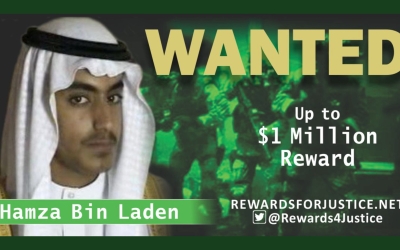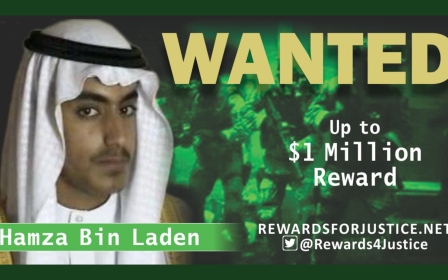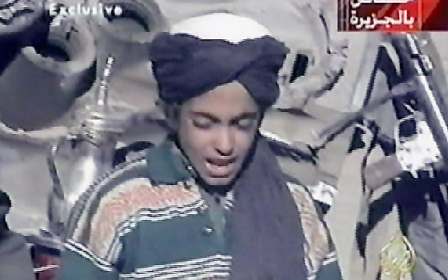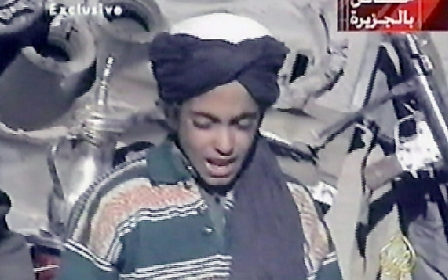Trump confirms bin Laden's son Hamza killed in US operation
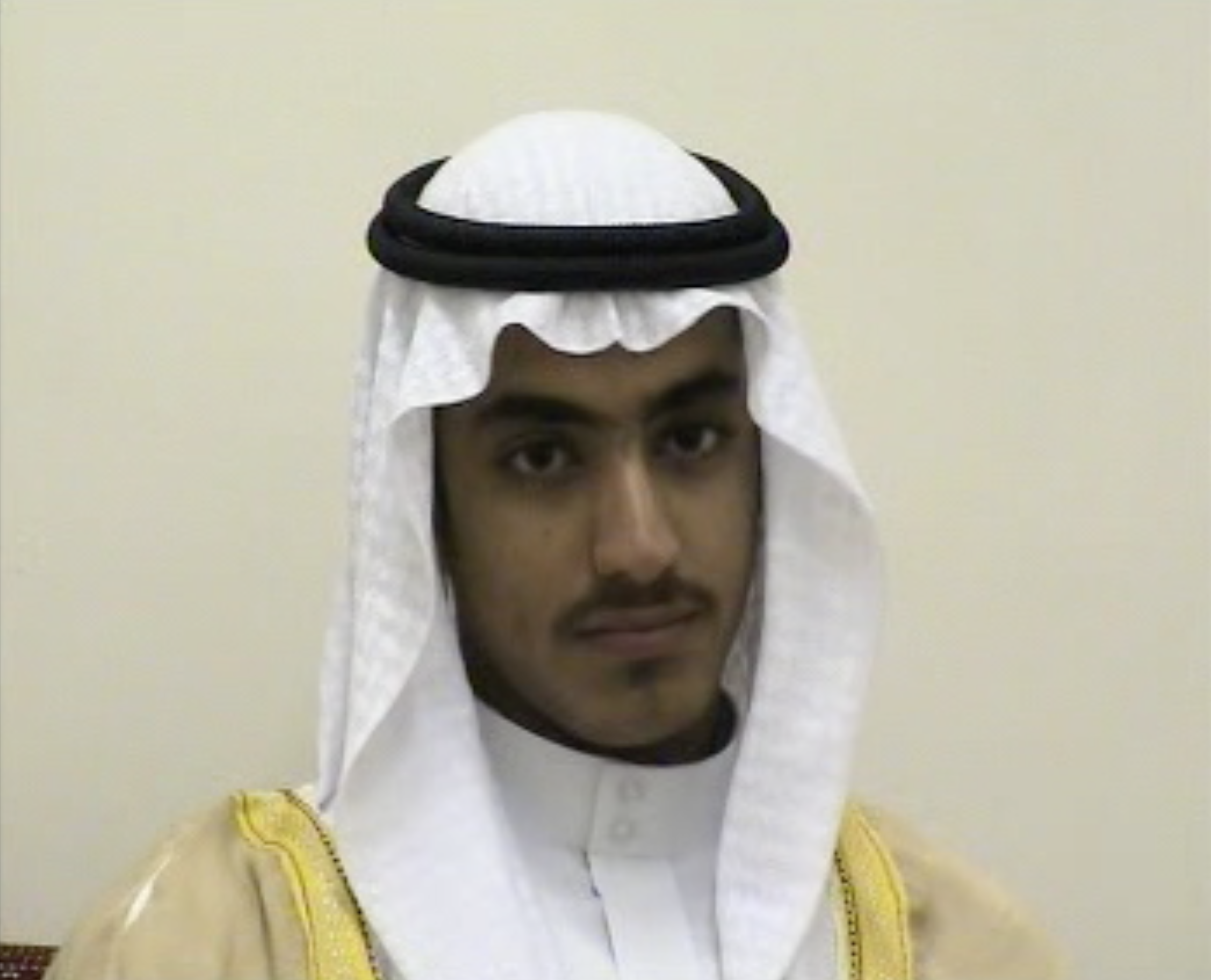
US President Donald Trump confirmed on Saturday that Hamza bin Laden, the son and heir apparent of al-Qaeda founder Osama bin Laden, had been killed in what he called a counterterrorism operation.
According to a White House statement, Hamza was killed along the Afghanistan-Pakistan border, but it did not give a date or exact location for the operation.
The announcement confirms earlier reports by US media, citing intelligence officials, that he had been killed sometime in the past two years.
"Hamza bin Laden, the high-ranking al-Qaeda member and son of Osama bin Laden, was killed in a United States counterterrorism operation in the Afghanistan/Pakistan region," Trump said in a brief statement issued by the White House.
"The loss of Hamza bin Laden not only deprives al-Qaeda of important leadership skills and the symbolic connection to his father, but undermines important operational activities of the group."
New MEE newsletter: Jerusalem Dispatch
Sign up to get the latest insights and analysis on Israel-Palestine, alongside Turkey Unpacked and other MEE newsletters
Who was Hamza bin Laden?
The 15th of Osama bin Laden's estimated 20 children and the al-Qaeda leader's only son by his third wife Khairiah Sabar, Hamza, thought to be about 30-years-old, was "emerging as a leader in the al-Qaeda franchise," the State Department said in announcing a $1m reward for his capture earlier this year.
Osama bin Laden was killed by US special forces who raided his compound in Pakistan in May 2011.
Hamza was thought to be under house arrest in Iran at the time, and documents recovered from the compound indicated that aides had been trying to reunite him with his father.
Hamza had put out audio and video messages calling for attacks on the US and other countries, especially to avenge his father's killing, the State Department said.
Documents seized in the raid on his father's house in Abbottabad suggested Hamza was being groomed as heir to the al-Qaeda leadership, the US has said.
At his father's side in Afghanistan before the 9/11 attacks when he was around 11 or 12 years old, Hamza learnt how to handle weapons, and spoke against Americans, Jews and "Crusaders" in videos uploaded online.
At least two of Hamza's brothers have been confirmed killed, allegedly by US forces, over the years - one, Saad bin Laden, was reportedly killed in Afghanistan in 2009, while another, Khalid, died in the Abbottabad raid alongside his father in 2011.
Stripped of citizenship
In 2016, al-Qaeda released a video message in which Hamza urged Islamic State (IS) and similar militants in Syria to unite.
In a later message that year, he called on Saudi youths to overthrow the kingdom's rulers, telling them to enlist in the Yemen-based al-Qaeda in the Arabian Peninsula (AQAP) to gain battlefield experience.
He also threatened to target Americans abroad and urged tribal groups in Saudi Arabia to unite with AQAP to fight against Saudi Arabia.
In March, Saudi Arabia announced it had stripped Hamza of his citizenship, saying the decision was made by a royal order in November 2018.
Hamza whereabouts have never been pinpointed. He was believed to have been under house arrest in Iran, but reports suggest he also may have resided in Afghanistan, Pakistan and Syria.
According to the Combating Terrorism Center (CTC), Hamza and other relatives were detained or heavily monitored by security forces in Iran from at least 2003, but were released in a prisoner swap deal in 2010.
Hamza's marriage to the daughter of prominent al-Qaeda military commander Abu Mohammed al-Masri while in his late teens was interpreted as a move to solidify his claim to leadership.
In 2017, he was placed on the US terrorist blacklist, seen as a potent future figurehead for the group then led by his father's former deputy Ayman al-Zawahiri.
Middle East Eye delivers independent and unrivalled coverage and analysis of the Middle East, North Africa and beyond. To learn more about republishing this content and the associated fees, please fill out this form. More about MEE can be found here.


